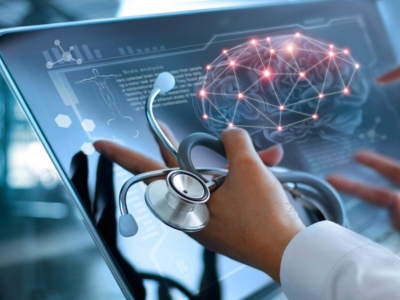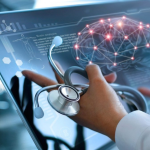Technology has immensely brought many incredible advantages to the healthcare industry and its services. Today, patients have access to the best and cutting-edge treatments. They also have access to innumerable minimally-invasive procedures that cause less pain and result in better recovery.
The overall goal of improving technology is to enhance efficiency in patient care and ultimately save lives. In this blog, we will explore the multifaceted role of technology in improving healthcare services, exploring its impact on patient care, diagnostics, treatment, and overall healthcare efficiency.
Improving Patient Care
After technological enhancements, there has been a significant impact on accessing patients’ medical records. The collection of patient data is one of the challenging tasks in many healthcare fields. This data is essential for doctors as it can greatly influence the lives of their patients. Before the advancement of technology, all data was documented on paper for analyzing a patient’s condition. However, paperwork data could become troublesome, especially when doctors needed to access past records. With the emergence of digitalization, patients’ medical information can now be entered into a cloud-based, digitized system. This digitalization brings ease to improving patient care.
Reduction in Medical Errors
Technology has facilitated the development of systems that have been proven to reduce medical errors and save more lives. The clinical decision support system provides healthcare professionals with medical information and specific patient information, reducing the chances of errors associated with paper-based records. It offers guidance on medication interactions, dosage calculations, and treatment protocols, helping to prevent medication errors and improve diagnostic accuracy.
Revolutionizing Diagnostics
When technology is integrated into the diagnostic system, medical diagnostic imaging has become more efficient than ever before. The results of MRI and CT scans are now more precise and efficient, aiding in early disease detection. Artificial intelligence (AI) algorithms analyze large amounts of data, providing faster and more accurate diagnoses. Furthermore, genetic testing and genomic medicine have become more accessible. This digitalization enables personalized treatment plans for faster recovery.
Challenges and Ethical Consideration
There are thousands of benefits of technology in the healthcare industry that are impossible to shrug off. Many of us are taking advantage of them, but at the same time, it poses some challenges. Data security and patient privacy must be strictly maintained to protect sensitive medical information. This digitalization can limit access to technology-driven healthcare services for some populations. On the other hand, the responsible use of AI and telemedicine needs careful attention
Isn’t it less than a challenge to keep balancing innovation with ethics and security remains?
Closing Argument
In this fast-evolving world, there are billions of technological inventions aimed at gaining efficiency in almost every aspect of life. Similarly, technology plays a crucial role in enhancing healthcare services, and we are reaping numerous advantages through this digitalization. With advancements in technology, doctors can successfully save lives and detect diseases earlier, enabling them to help patients prevent these diseases in their initial stages. The future of healthcare is undoubtedly succeed with the continued evolution of technology.




